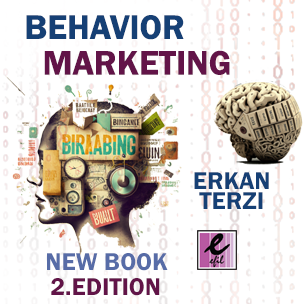Marketing is far more than the art of promoting products; it is a true scientific discipline. Through scientific methods, marketing seeks to understand consumer behaviors, analyze data, and make strategic decisions. Techniques such as experimental studies, data analysis, and psychological research provide the backbone of these processes.
The scientific nature of marketing begins with the measurement and analysis of consumer behavior. Data is collected using tools like surveys, focus groups, and big data analytics to understand consumer motivations and purchasing patterns. This data then guides strategic choices — from product development and pricing models to the design of advertising campaigns. At every stage of marketing, applying a behavioral perspective grounded in scientific methodology is essential. Personal experience matters, but it must be combined with structured research and analytical thinking.
P&G (Procter & Gamble) stands as a leading example of how investing in marketing research drives decisions based on consumer insights. Research conducted for Pampers revealed the importance parents place on the health of their baby’s skin. Responding to this insight, Pampers developed products specifically catering to these concerns.
Similarly, Amazon leverages complex algorithms to power its recommendation system. By analyzing customers’ past purchases and browsing patterns, Amazon offers personalized suggestions, dramatically improving customer satisfaction and helping the brand cement its place as a global leader in e-commerce.
Netflix also exemplifies data-driven success. The company tracks user viewing habits and content preferences, using this information to decide which series and films to produce. This ability to align production strategies with viewer behavior has fueled Netflix’s rise in the content world.
The scientific foundation of marketing is reinforced by established theories and models. For example, the AIDA Model (Attention, Interest, Desire, Action) outlines the phases of the consumer decision-making journey. It helps marketers understand how to guide audiences from awareness to purchase. Furthermore, marketing’s close relationship with the social sciences — economics, psychology, sociology, and anthropology — demonstrates that marketing cannot be separated from these academic fields. Success in marketing depends on understanding and applying knowledge from these disciplines. Campaign outcomes vary based on different goals and conditions, and without understanding the underlying factors, achieving sustainable success is nearly impossible. You may find occasional victories by chance, but without a solid grasp of the “why” behind your actions, repeated failures will eventually follow.
Marketing is fundamentally a data-driven, scientific endeavor. Areas such as consumer psychology, data interpretation, and strategic planning highlight the analytical core of the field. Effective marketing strategies not only boost corporate profits but also create real value for consumers. As in any craft, mastering marketing requires learning every detail thoroughly, while maintaining a strategic vision about the broader outcomes. A scientific approach is rooted in theoretical education, but practical business experience is equally vital. Possessing one without the other will leave your foundation incomplete. Balancing both is essential, and long-term success will depend on your intelligence, dedication, and leadership abilities.
One key principle of the scientific approach is the continuous cycle of practice and feedback. Field testing marketing strategies and adjusting based on real-world feedback ensure the integration of theory and practice. However, alongside analytics and behavioral research, marketers must also prioritize ethical standards, especially regarding consumer privacy. Working with data demands a high level of ethical responsibility. Marketing should never be confused with deception. It is not about tricking people into buying what they don’t need — it is about understanding needs and offering value ethically.
For all these reasons, do not get swayed by clichés or misinformation spread by those outside the marketing profession. In your career as a marketer, let scientific principles and ethical integrity guide every decision you make.


